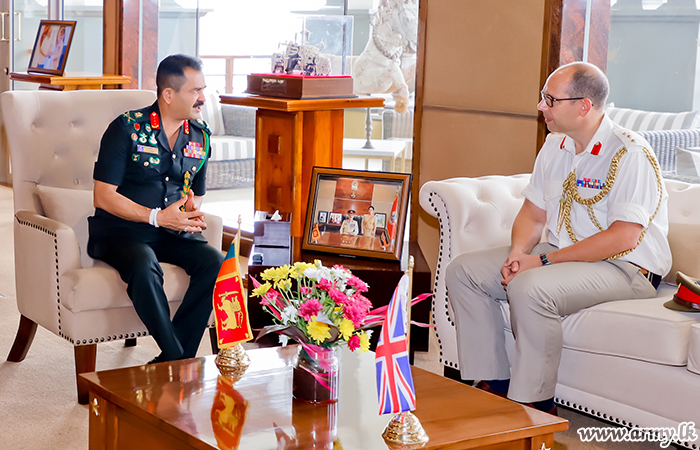
Despite repeat concerns over Sri Lanka’s war crimes accused army, Britain’s Defence attaché met with Sri Lanka’s current army commander Vikum Liyanage to discuss “enhancing training programmes for Sri Lankan Army personnel” and potential “exchange programmes”.
The meeting follows repeated warnings over deepening military impunity in Sri Lanka. In January 2021, the United Nation’s High Commissioner for Human Rights reported:
“The government has now demonstrated its inability and unwillingness to pursue a meaningful path towards accountability for international crimes and serious human rights violations, and signalled instead a fundamentally different approach which focusses on reparation and development, but threatens to deny victims their rights to truth and justice and further entrench impunity.”
The British government established in January 2019 the position of resident Defence Advisor in Colombo for the first time since 2009. Sri Lanka’s Campaign for Peace and Justice warns that:
“The presence of a UK Defence Advisor and the active programme of engagement between the UK and Sri Lankan armed forces lends legitimacy to the Sri Lankan military. The Sri Lankan military regularly presents its interactions with the UK military as an endorsement of their work”.
They further report that since 2015, the UK has been rebuilding its relationship with Sri Lanka’s armed forces. This includes training programmes, joint military exercises, and diplomatic visits to senior commanders.
An undercover investigation in 2017 detailed how Police Scotland trained Sri Lanka’s notorious Special Task Force which has faced accusations of extrajudicial killings, disappearances and sexual violence since its formation in 1983.
Numerous human rights organisations documented the ongoing use of torture and sexual violence by Sri Lanka’s security forces.
Read more here.
We need your support
Sri Lanka is one of the most dangerous places in the world to be a journalist. Tamil journalists are particularly at threat, with at least 41 media workers known to have been killed by the Sri Lankan state or its paramilitaries during and after the armed conflict.
Despite the risks, our team on the ground remain committed to providing detailed and accurate reporting of developments in the Tamil homeland, across the island and around the world, as well as providing expert analysis and insight from the Tamil point of view
We need your support in keeping our journalism going. Support our work today.
For more ways to donate visit https://donate.tamilguardian.com.

